What are egg allergy foods to avoid?
I wanted to put this together because food labels can be deceiving if you don’t know what you’re looking for.
Furthermore, eggs are seemingly in everything. And I’m hearing more people say that even a small amount of egg seems to really bother them.
Eggs are a Top Allergen
According to the American College of Allergy Asthma and Immunology, eggs are one of the most common foods allergies.
(In case you were wondering, the other 7 types of food that account for 90 percent of all allergic reactions include: milk and dairy – cow’s milk, peanuts, tree nuts, fish, shellfish, wheat, soy, and sesame.)
If you have an allergy, the body’s immune system overreacts to an allergen by producing antibodies called Immunoglobulin E (IgE).
Symptoms of an igE reaction (i.e. symptoms of egg allergy) include:
- Periodic or persistent itching
- Hives
- Itchy eyes
- Eczema
- Nausea, vomiting, persistent diarrhea
- Sneezing, coughing, congestion
- Difficulty breathing
- Asthma symptoms: wheezing, breathlessness, coughing, tightness in the chest
(source)
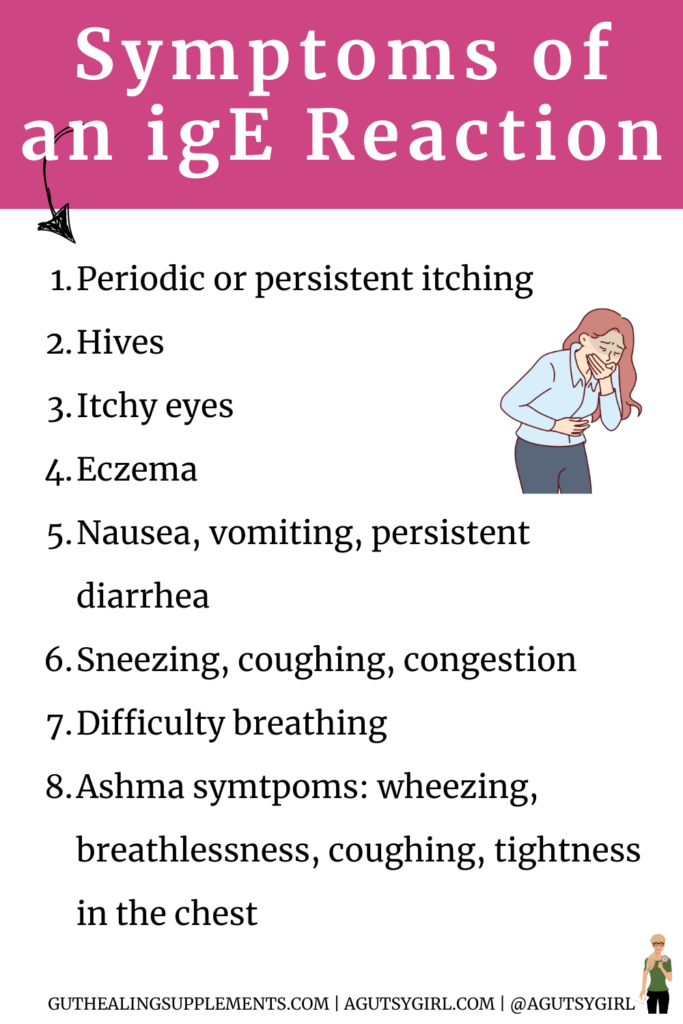
IF you have a true and severe egg allergy, then the chances are you already know because you have likely already experienced severe symptoms; perhaps have even needed medical attention for the egg allergy symptoms.
Egg Intolerance
However, with an egg intolerance you may not have experienced such a severe reaction.
A food intolerance and hypersensitivity will not trigger an allergic reaction.
However, it can cause a whole host of unpleasant symptoms such as abdominal pain, gas, bloating, headaches, and heartburn.
A food intolerance occurs when the digestive system fails to break down certain foods. It often can be due to a lack of pancreatic enzymes or certain developments over time, such as a lactose intolerance.
It also is often linked with increased iGg proteins, which can trigger an overactive immune response. This can cause inflammation and discomfort, especially in the gut region.
Food intolerances are extremely commonly, and it is where the majority of the Gutsy community falls.
And while it’s not life-threatening, it’s frustrating because a food intolerance has a delayed response.
It can take anywhere from hours to days to show up after eating specific foods.
Thus, people tend to spin their wheels for years trying to figure out what’s wrong.
Some even go their entire lives without pinpointing which specific foods are giving them issues.
You can learn more about Food Allergies vs Food Intolerances.
Egg Yolk vs Egg White
Egg-allergic individuals are typically reacting to the egg white and not the egg yolk.
Many people are intolerant to egg whites, but here’s something many people don’t know about egg intolerance/allergy: Most people are only intolerant/allergic to the egg white if they have an intolerance at all.
The majority of people who suffer from egg intolerance are intolerant only to the egg white.
Being intolerant to egg yolk (foetus), while possible, is much more uncommon.
What happens, though, is that over time when the egg white and yolk are eaten together, our bodies tend to develop a mild intolerance to the yolk as well.
For example: When I first started this journey, I did food intolerance testing.
On a scale of 1-5, I tested at a 4 for the egg white, but only a 2 for the egg yolk.
I am not against egg whites. I absolutely love them. And back in the day, I used to eat them by the dozens.
However, during that time, I was also likely on one of my ugly diets where I fell victim to the, “don’t eat the yolk – too many fat and calories” theory.
Once I realized my body could not tolerate the egg white, but would likely be able to tolerate the egg yolk after some time of separation, I grew to adore the egg yolk.
Severe Egg Reaction
As a personal side note, back in 2015, I did experience a severe egg reaction.
It landed me in the emergency room.
You can read all about my experience with eggs and ER, but it’s important to note that the times I had major reactions, I had just finished eating duck eggs.
The main differences between duck and chicken eggs are:
- Duck eggs are about 50% larger than chicken eggs
- Because they are larger, they have more fat, cholesterol, protein, and calories
- The shells are different color (but this has no relation to the properties of the egg itself)
- They taste different
- Duck eggs are harder to find
Shortly after, I met with my main functional practitioner, who suspected gallbladder, an ulcer, a (very uncommon) reaction post-Rifaxamin (unlikely, but can’t rule it out) or an allergy of some sort to eggs.
It is now almost 2025, and I will tell you that I can eat eggs without pain.
Looking back, if I had to guess, I’d say that my severe reactions to eggs was due to a reaction post-Rifaximin.
But then again, I don’t think I’ve had a duck egg since.
Perhaps it was the duck egg in particular.
In any case, I’m just trying to share all aspects of eggs and various forms of eggs.
Egg Allergy Foods to Avoid
Click HERE to save this article on egg allergy foods to avoid for later.
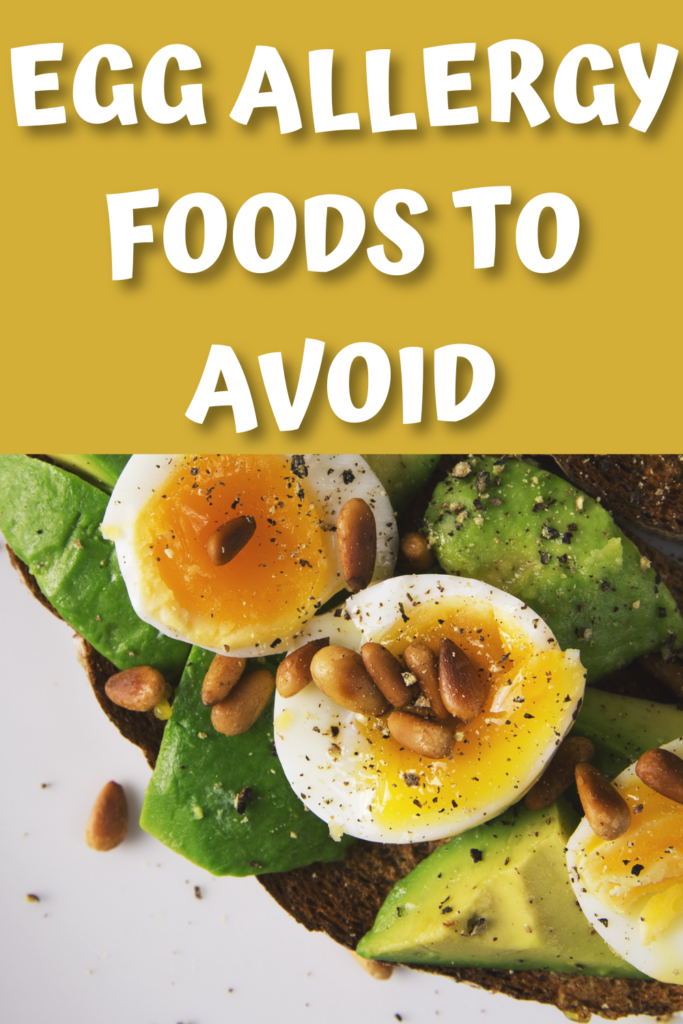
Regardless of whether you have egg allergies or egg products give you unwanted reactions, it’s important to note that egg ingredients are in so many food products.
People who do not tolerate eggs can stay sick for a very long time because they don’t understand all the alternative names for eggs and egg sources in general.
I have many lists like the egg one below in A Gutsy Girl’s Bible.
For today, perhaps this is just the list of 54 egg sources and alternate names you’ve been looking for!
54 Egg Sources and Alternate Names
- Aioli
- Albumin
- Apovitellin
- Baked Goods
- Bread
- Breaded Foods
- Cake
- Candy
- Casserole
- Conalbumin
- Cookies
- Croissant
- Custard
- Dried Egg
- Dried Egg Solids
- E-161b
- Eggnog
- Egg Beaters
- Egg noodles
- Protein, egg
- Egg Wash
- White, egg
- Yolk, egg
- Energy Bars
- Globulin
- Hollandaise Sauce
- Ice Cream
- Livetin
- Lysozyme
- Mayonnaise
- Meringue
- Muffin
- Ovalbumin
- Ovoglobulin
- Ovomucin
- Ovomucoid
- Ovotransferrin
- Ovovitellin
- Pancake
- Pastry
- Powdered Egg
- Protein Powder
- Protein Shakes
- Pudding
- Punch Egg
- Quiche
- Rolls
- Salad dressings
- Silici Albuminate
- Simplesse
- Surimi
- Tartar Sauce
- Trailblazer
- Vitelli
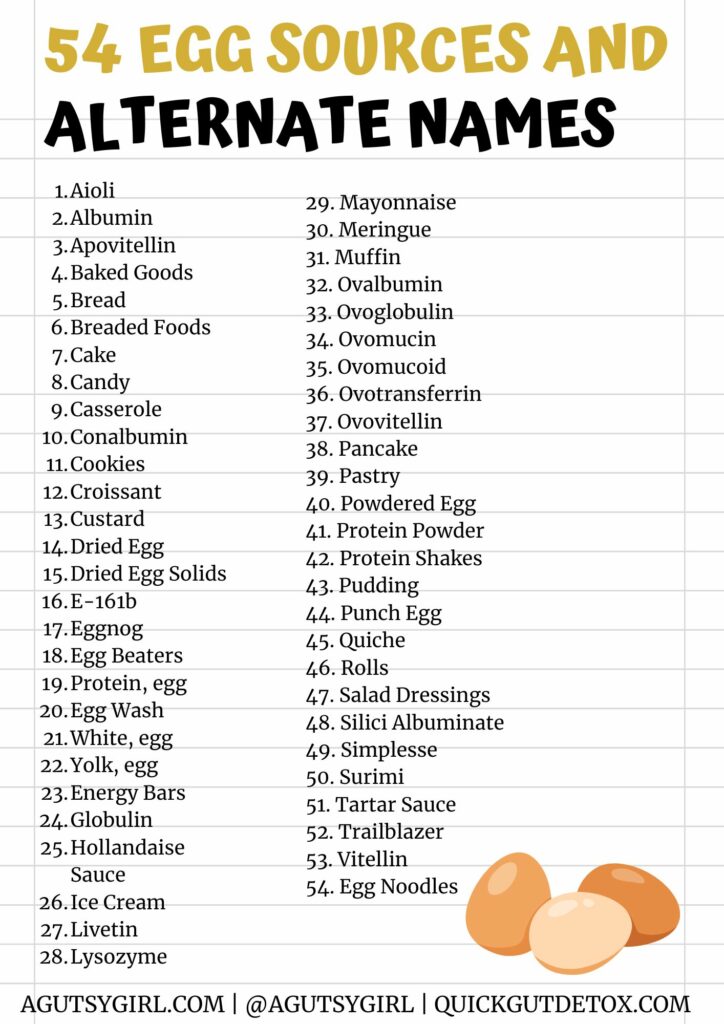
Identifying Eggs
In order to truly know if you are eating any forms of eggs, you’ll need to pay attention to ingredient labels on any packaged items (you can start by printing the ingredient list from above).
Contact the food manufacturer when in doubt.
And in order to understand the degree of harm they may be doing to your body, you can:
- See an allergy specialist who can give you a blood test for confirmation
- Do a skin prick test for intolerance (9 sensitivity tests)
- Try an elimination diet / oral food challenge
Digesting Eggs
There are 8 main reasons why you might not be able to digest eggs.
And if you can’t, the good news is that there are ways to swap both the egg white and egg yolk.
4 common egg substitutes (for the egg white) include:
- 1 egg white = 3 Tablespoons water + 1 Tablespoon flaxseed
- egg white = 3 Tablespoons water + 1 Tablespoon chia seeds
- 1 egg white = 1 Tablespoon agar powder + 1 Tablespoon water
- egg white = 1/4 teaspoon xanthan gum + 1/4 teaspoon water
3 common egg yolk replacers include:
- Avocados
- Nut butters (how to make homemade nut butters) (3 Tablespoons = 1 yolk)
- 1/4 cup thick yogurt (try my 2-Ingredient Coconut Yogurt) = 1 yolk
7 common whole egg replacers include:
- egg = 1 teaspoon unflavored gelatin with 1 Tablespoon warm water (I do this all the time; use the Perfect Supplements gelatin and my code GUTSY10 HERE to save 10%)
- Tofu. Many make tofu scrambles (I have) instead of scrambled eggs. I do caution this if you’re really trying to heal your gut, though. Tofu is soy so if you choose this route, track any symptoms following the meal and definitely make sure it’s organic soy. Also, 1/4 cup pureed tofu = 1 egg.
- 1 egg = 3 Tablespoons aquafaba
- egg = 1 small, ripe, mashed banana
- 1 egg = 1/4 cup unsweetened applesauce
- egg = 1 Tablespoon apple cider vinegar + 1 teaspoon baking soda (this acts as a leavener, like a science experiment it will bubble)
- 1 egg = 1/2 Tablespoon olive oil + 22 grams warm water + 1 teaspoon baking powder
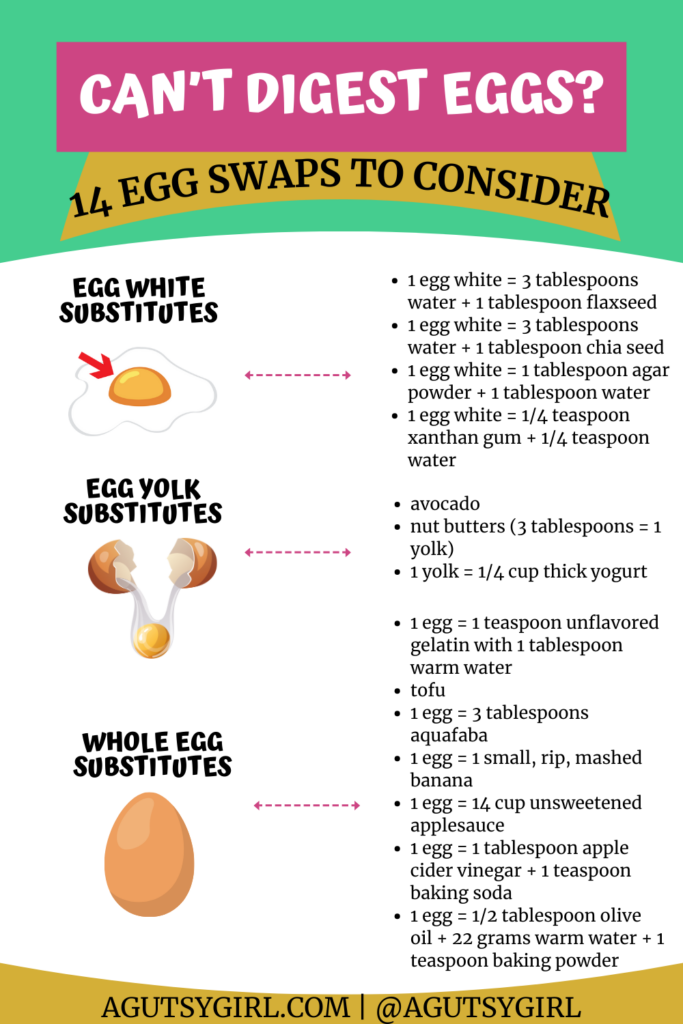
If you liked this information on egg allergy foods to avoid, you might also enjoy:
Xox,
SKH
🤰 bloating be gone! weight loss through optimal gut health for women
💃ʜᴇᴀʟ ʏᴏᴜʀ ɢᴜᴛ. ʜᴇᴀʟ ʏᴏᴜʀ ʟɪfe.
🫶🏻 founder gutbyome.com

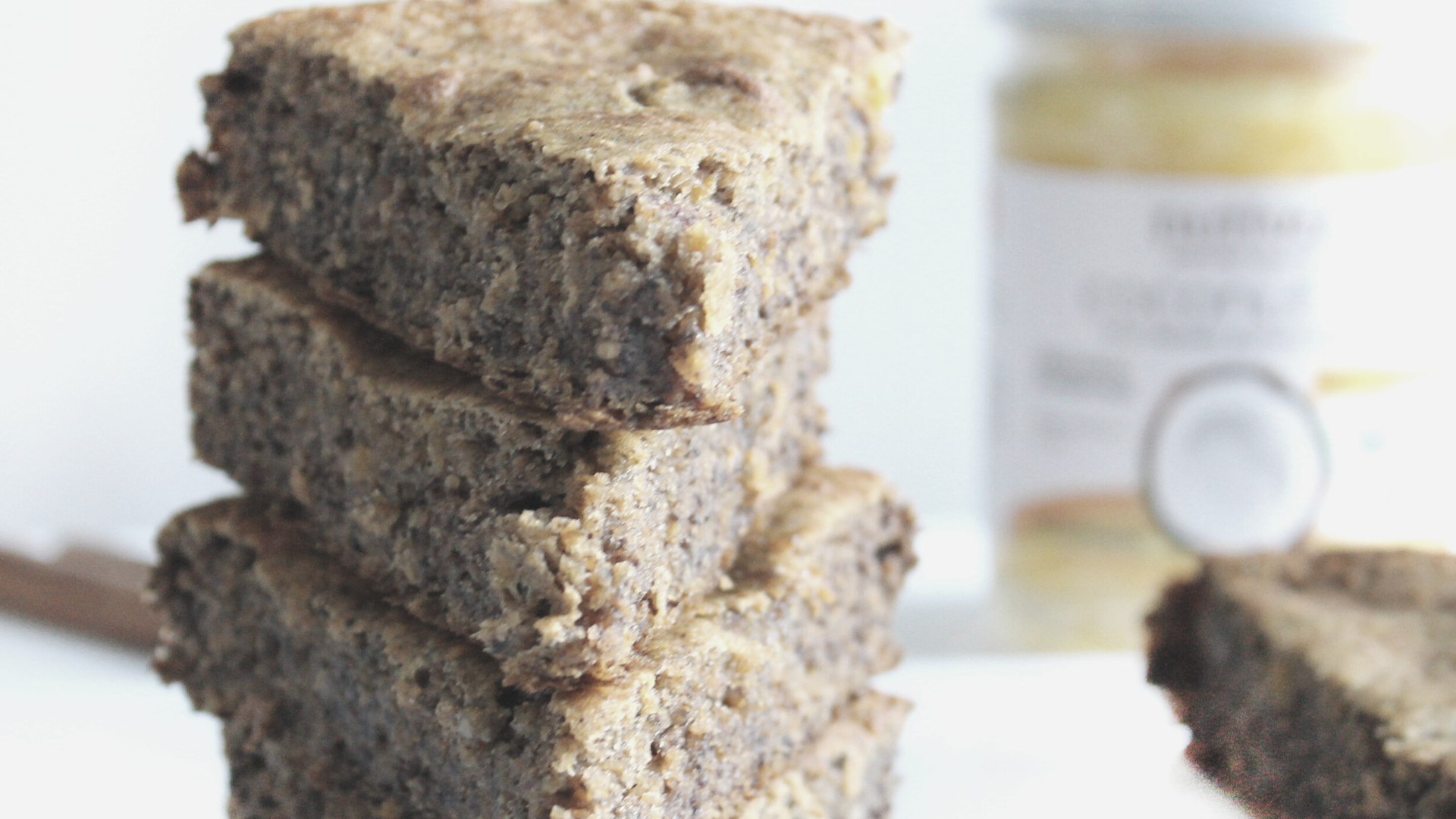
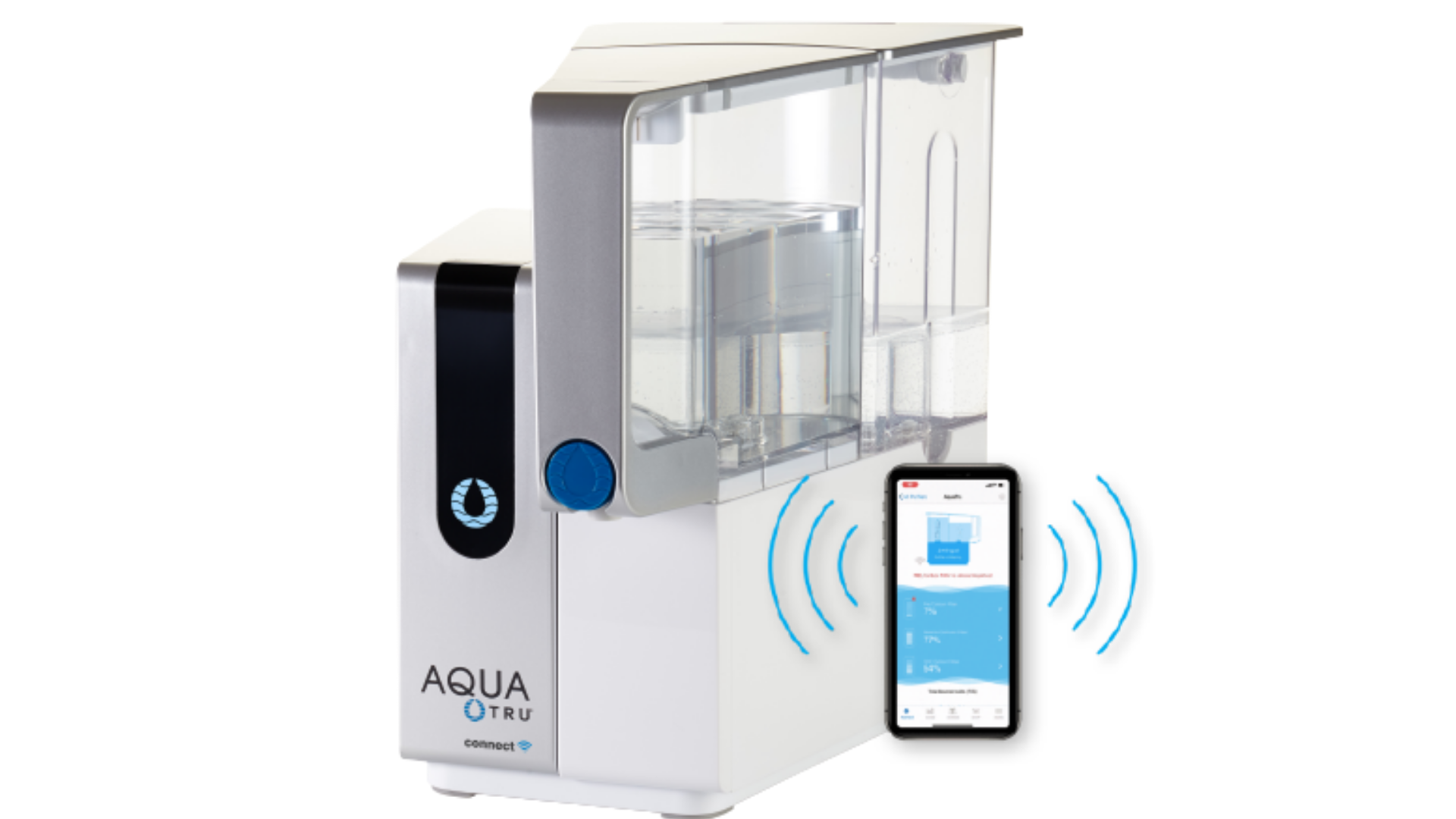
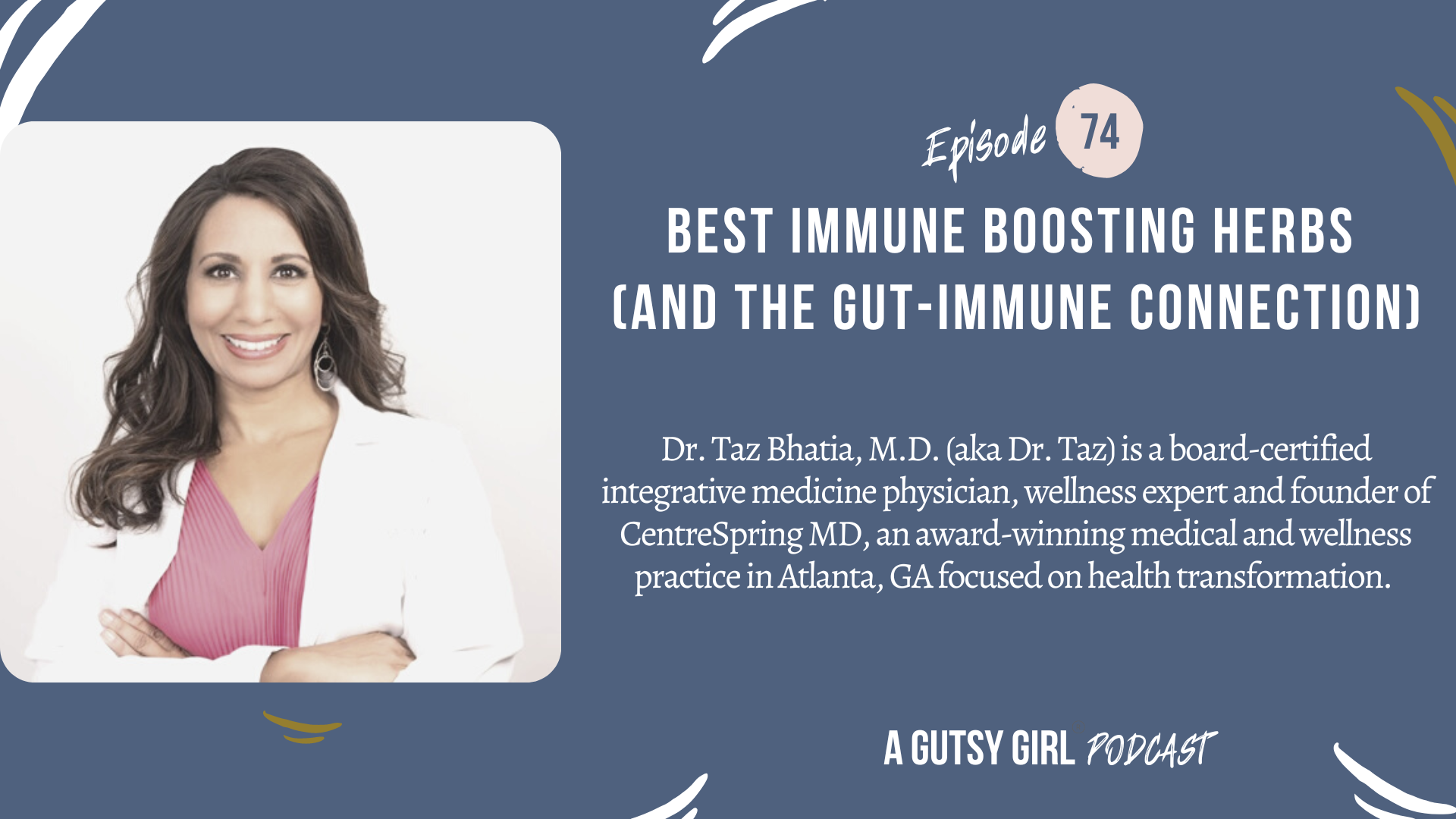



Very interesting, I get intolerant to egg whites if I eat them too much so I try to space them out throughout the week. Thanks for sharing your list! xo C
I could write a whole post on egg white vs. egg yolk for this very reason:)
I had no idea there were so many egg sources! I often like to use different vegan recipes – so I am going to have to look out for some of these alternatives. There are a few a have not heard of!